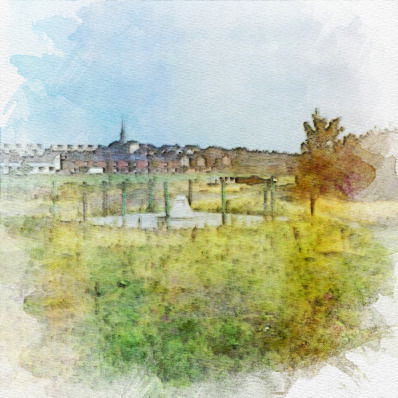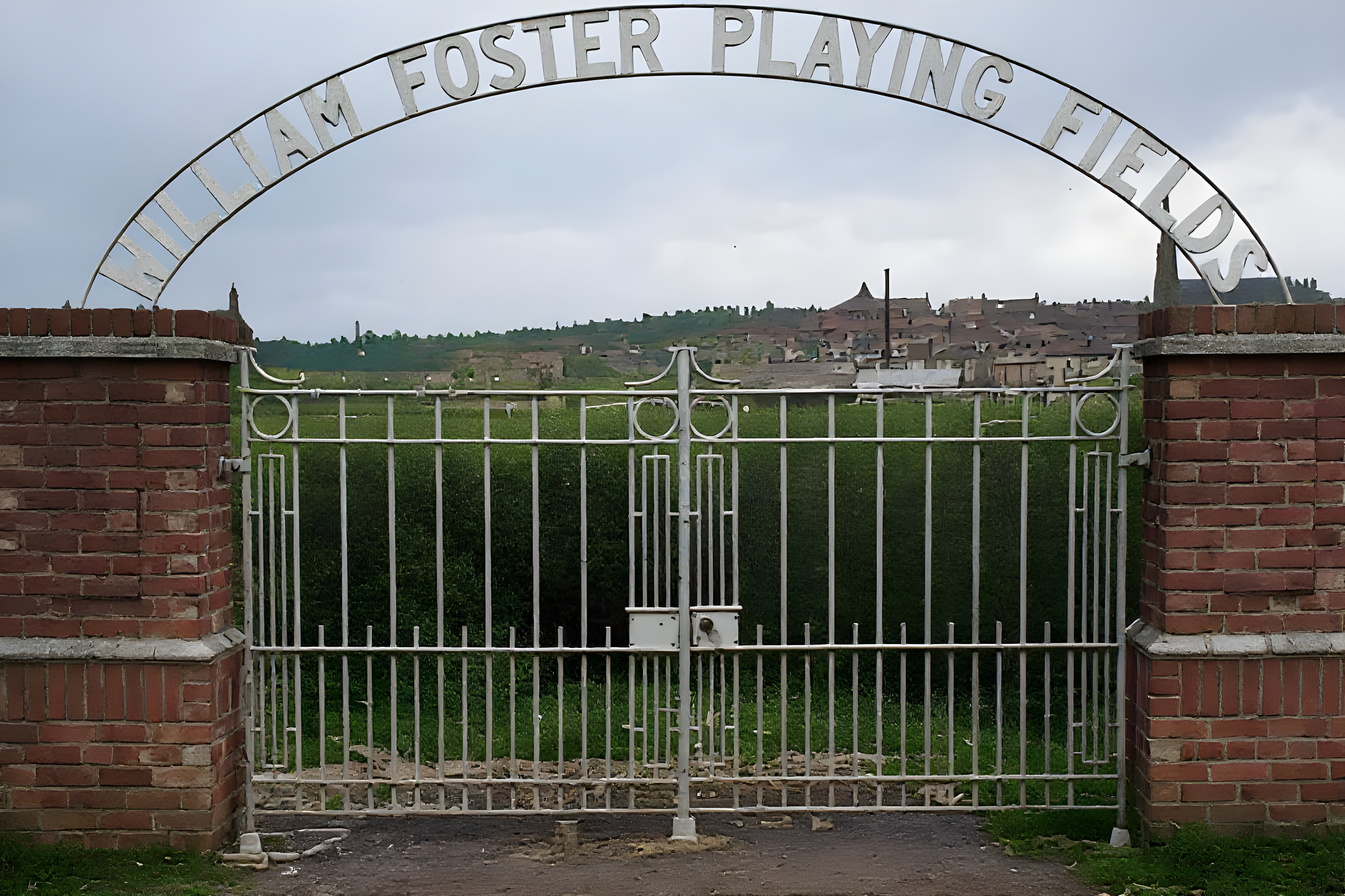Who was William Foster?

During the Second World War, very little timber was imported into the UK. However, equipment such as jeeps, tanks, and other military supplies, mainly from the United States, arrived in the port of Liverpool packed in wooden crates.
William Foster, who had an established timber business in Rainford, received a contract from the Ministry of Supply’s Timber Control Division. His task was to collect these wooden crates from Liverpool docks, break them down, and store the reclaimed timber in sizes required for further use. The timber was then dispatched to wherever it was needed by the Ministry.
Timber was a precious commodity during the war. Mr. Foster had to find suitable sites to store the reclaimed wood, one of which was derelict land of Ince Green Lane—an area that later became known as the William Foster Playing Fields.
A number of local people, mostly women, worked during the winter, a challenging time given the cold weather. A local firm, Calderbank & Son would collect scrap metal from the site. A portion of the reclaimed timber was sent to William Foster’s factory in Rainford, where it was used to make composite boxes. These were filled by other companies and then dispatched to military units in various war zones.
After the war, when the site was cleared, William Foster contacted the Playing Fields Association to inquire whether the area could be used as a recreational space for the local community. The offer was accepted, and the fields were officially opened on 9th May, 1960.
